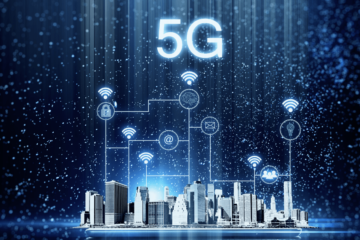
Digital technologies are fundamentally altering telecommunications. These transformative elements are redefining how telecom companies operate, offer services, and engage with customers.
The Necessity of Digital Technologies in Telecom
The fast-paced nature of the telecom industry demands constant evolution to meet consumer needs and stay ahead of competitors. In this setting, the role of digital technologies cannot be overstated. They optimize operations, enhance service delivery, and open new avenues for revenue generation.
Cloud Computing: The Backbone of Modern Telecom
Cloud computing is not a luxury but a necessity. By transitioning to cloud-based systems, telecom companies can store vast amounts of data, improve system reliability, and scale services in an agile manner.
Cloud services also pave the way for remote work solutions, a critical feature in today’s increasingly digital workforce.
Artificial Intelligence and Machine Learning: Enhancing Customer Experience
Artificial Intelligence (AI) and machine learning algorithms have applications ranging from customer service to network management. Chatbots can handle customer queries at any time of day, while predictive algorithms can identify maintenance needs before they become critical issues. This significantly reduces downtime and improves customer satisfaction.
5G: Shaping the New Era of Connectivity
5G technology is setting the stage for a connectivity revolution. With greater bandwidth and lower latency, 5G will improve service quality while enabling new services like IoT and ultra-reliable low latency communication.
Telecom operators are investing heavily in 5G infrastructure, ensuring a seamless transition to this next-generation network.
Internet of Things (IoT): Beyond Smartphones
IoT technology is broadening the scope of devices that can be networked, from industrial sensors to home appliances. Telecom companies are playing a pivotal role in this expansion, offering specialized IoT connectivity solutions and platforms for data analytics.
Blockchain: A New Paradigm in Data Security
Blockchain is not just for cryptocurrency. In the telecom sector, it ensures transparency and integrity in transactions. By deploying blockchain, telecom operators can secure customer data, protect against fraud, and improve supply chain visibility.

Big Data and Analytics: A Game-Changer for Decision-Making
Data is the new oil, and telecom operators sit on a goldmine of user-generated data. Advanced analytics tools can parse this data to reveal customer behavior patterns, optimize network performance, and even predict future trends.
Virtual and Augmented Reality: Expanding Horizons
Although still nascent, Virtual Reality (VR) and Augmented Reality (AR) technologies offer exciting possibilities, from enhanced media consumption to sophisticated teleconferencing solutions. As 5G networks roll out, these technologies are expected to reach their full potential.
Digital Transformation: The Journey, Not the Destination
It’s vital to understand that digital transformation is a continuous process. Technologies evolve, and consumer demands shift. Telecom companies must adapt by regularly updating their strategies and embracing new technologies.
The Future Is Now: Be a Part of the Transformation
The telecom industry is in the midst of a digital transformation. Those who adapt will flourish, while those who resist will fall by the wayside. Digital technologies are more than just tools; they are catalysts for innovation and growth, reshaping the telecom industry from the ground up.
Companies like Twoosk can help you on the digital transformation mission with its easy platform, data insights and sector expertise that will aid you on unlocking your company’s potential and growth.
Related articles: Empowering Digital Transformation: Essential Tools









